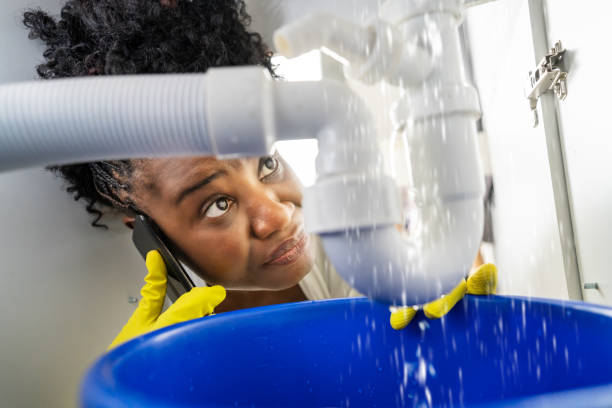5 Priciest Home Plumbing Disasters And How To Prevent Them
Plumbing disasters can cause extensive damage to homes if not properly addressed.

Plumbing disasters can be a major inconvenience and cause significant damage to our homes if not properly addressed. One way to prevent such disasters is to keep an eye on potential problem areas. Regularly inspecting pipes and plumbing fixtures for leaks, cracks, or loose fittings can help identify issues early on. Additionally, ensure that all plumbing connections are properly sealed to prevent water leakage. It's essential to avoid clogs by being cautious about the items that are being flushed down the toilet or washed down the sink.
1. Burst Pipes
One of the costliest plumbing disasters a homeowner can face is a burst pipe. Not only does it lead to extensive water damage, but it can also result in high repair and restoration costs. Burst pipes commonly occur during freezing weather when water inside the pipes freezes and expands.
To prevent burst pipes:
- Insulate exposed pipes, especially those in unheated areas such as basements, attics, and crawl spaces.
- Allow faucets to drip during extremely cold temperatures to keep water flowing.
- Keep your home adequately heated, even when you are away, to maintain a consistent temperature.
2. Water Heater Failure
A malfunctioning or failing water heater can cause significant damage to your home. Water heater leaks or bursts can lead to flooding and water damage, as well as the need for costly repairs or replacement.
To prevent water heater failures:
- Regularly inspect your water heater for visible signs of leakage or rust.
- Flush your water heater annually to remove sediment buildup.
- Keep the temperature setting at a reasonable level to avoid excessive strain on the unit.
3. Sewer Line Backup
A sewer line backup is a messy and expensive plumbing disaster to deal with. It can lead to sewage overflow and contamination, causing health hazards and property damage. Sewer line backups can occur due to tree root infiltration, clogs, or old and damaged pipes.
To prevent sewer line backups:
- Avoid flushing anything other than toilet paper down the toilet.
- Never pour grease or oil down the kitchen sink.
- Regularly inspect and maintain your sewer line by a professional plumber.
4. Slab Leak
A slab leak refers to a water leak occurring beneath the concrete foundation of a home. It can cause extensive damage to the foundation, floors, and walls, resulting in costly repairs and restoration.
To prevent slab leaks:
- Monitor your water bill for any unexpected increases, as it could indicate a hidden leak.
- Keep an eye out for signs of water damage, such as damp or discolored spots on the floor or walls.
- Have regular inspections and maintenance by a nearby plumber to identify any potential issues early on.
5. Gas Line Leak
A gas line leak is not only dangerous but can also lead to expensive repairs and safety hazards. Gas leaks can occur due to aging or damaged pipes, poor installation, or natural disasters.
To prevent gas line leaks:
- Install gas appliances and systems professionally, ensuring proper connections and fittings.
- Regularly inspect your gas lines for any signs of corrosion, leaks, or damage.
- If you suspect a gas leak, evacuate the premises immediately and contact your gas provider for emergency assistance.
By taking preventive measures and staying vigilant, homeowners can avoid these costly plumbing disasters and ensure the longevity and safety of their plumbing systems.

